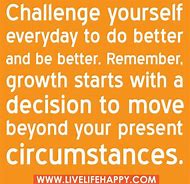
British novelist and short story writer Phyllis Bottome said, “There are two ways of meeting difficulties: You alter the difficulties, or you alter yourself to meet them.” On our life journey, we will face many difficulties, many challenging situations. Most of those situations or occurrences will be out of our control and out of our ability to alter them. Which means, for most of the difficulties or challenges or hard times we face, we have to alter ourselves (our approach and our attitude) to meet them.

If we’ve learned anything from dealing with life during the Covid-19 pandemic, it is certainly that. We have no control over that virus.  We have no control over the restrictions placed upon us in attempts to mitigate the effects of the virus. (We may voice an opinion to local, state, or federal leaders, but we have no control over the decisions made.) We also have no control over most change that enters our life, especially unexpected or unwanted change. So, that leaves us with needing to look inward and draw upon our inner strength to deal with and overcome difficulties and challenges or as Ms. Bottome says, “…alter yourself to meet them.” This week, let’s explore 14 strategies we can use to alter our approach and our attitude when dealing with life’s difficulties and challenging situations.
We have no control over the restrictions placed upon us in attempts to mitigate the effects of the virus. (We may voice an opinion to local, state, or federal leaders, but we have no control over the decisions made.) We also have no control over most change that enters our life, especially unexpected or unwanted change. So, that leaves us with needing to look inward and draw upon our inner strength to deal with and overcome difficulties and challenges or as Ms. Bottome says, “…alter yourself to meet them.” This week, let’s explore 14 strategies we can use to alter our approach and our attitude when dealing with life’s difficulties and challenging situations.
Never give up, give in, or lose hope. We all have something inside of us that is greater than any challenge/obstacle/situation that we may encounter on our life journey.

Believe: in ourselves and in our inner strength and resilience. Remember strength doesn’t come from we can’t do but rather from overcoming that which we think we can’t.

Focus on the response to what we’ve been ‘dealt,’ not the ‘hand we’ve been dealt.’ It is how we move forth in the wake of everything that makes the difference. Soar and move forward instead of wallowing in the situation.

Get real with what has happened or is going on. A natural response is to avoid what we don’t like or begin denying what is going on. Instead, acknowledge and accept what has happened then seek perspective on what is going on.

Center on what is important. Activate Plan B if Plan A isn’t working.

Be resourceful and curious in seeking solutions and moving beyond the situation.

Maintain a positive outlook. Even though things may be tough right now, look beyond and notice what is good.

Be patient. In due time, we will be able to move beyond our emotions, put things in perspective, and enact our personal action plan. Baby steps will get us where we need to go. It may take longer, but our growth along the way will be worth it.
Move beyond fear. Avoid worrying about ‘what might be.’ When we fear our struggles, they tend to consume us. But, when we face our struggles, we tend to overcome them. As Brené Brown (research professor at the University of Houston’s Graduate College of Social Work) says,“Show up, face fear, and move forward.”

Appreciate life as it is instead of how we want it to be. We don’t always get what we want. If we can be happy with what we have and work with it, we are in a better position to handle life’s most challenging or difficult circumstances when they come our way.

Release the emotions (cry, yell, scream…) then dig in and deal with the situation; develop a plan of action. The aftershocks of the situation and the emotions will not remain forever; they will dissipate over time and with a plan of action, we will be able to move beyond and move forward. Yes, it may be difficult and it may take time to resolve the situation and move on. The important thing is to take the first steps to acknowledge, accept, and work the plan.

Eliminate absolutes like ‘never’ and ‘always’ (I will never get over this) from thoughts and replace with more relative, open words like ‘sometimes’ and eventually (I will eventually get over this).

Know that personal growth is a result of getting through the challenging situation. See it; believe it; achieve it.

Enlist the help of friends and family – those that are willing to listen and provide constructive ways to move beyond the situation.

When we can’t alter the difficulties and challenges that come our way, these 14 strategies will help us alter ourselves (our approach and our attitude) so that we are better positioned to deal with the hard times that join us on our life journey. The challenging times we face give us an opportunity to learn and grow and become stronger. That growth in itself is a good thing!! And, anything else positive that comes from overcoming hard times is an added benefit to us. Remember, it is when we handle life’s difficulties, overcome them, and move beyond them that life becomes meaningful!


















































